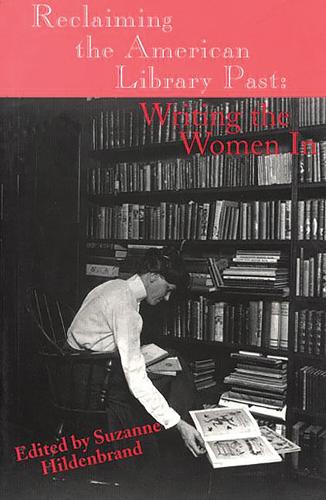
Reclaiming the American Library Past: Writing the Women In
(Paperback)
Available Formats
Publishing Details
Reclaiming the American Library Past: Writing the Women In
By (Author) Suzanne Hildenbrand
Bloomsbury Publishing PLC
Praeger Publishers Inc
1st January 1996
United States
Classifications
Tertiary Education
Non Fiction
020.973
Physical Properties
Paperback
336
Width 152mm, Height 229mm
454g
Description
This solid anthology makes a fine start at the effort in its title, ^IReclaiming the American Library Past: Writing the Women In^R. Like most good beginnings, it succeeds first by clarifying the status of the field and then by raising questions for subsequent scholars to ponder and pursue. -^IHistory of Education Quarterly ^RThe essays in this book contribute along several dimensions to the new scholarship on a profession and public service of vital importance for well over a century to American literacy, culture and invention. Their authors add to the individual and collective biographies of women who have founded and administered diverse institutions and taught succeeding generations of librarians. The worksites of influential women such as Anne Carroll Moore, Josephine Rathbone, and Grace Hebard, like the nameless paid and volunteer staff who have served as unrecognized catalogers and children's librarians, have varied. They range from the pioneering libraries and library schools of the settled East- including Brooklyn and the Harlem, Times Square, and Morningside Heights neighborhoods of Manhattan- the historically Black Howard University to the numberless small towns of the West. They include the raw A&M colleges of Arkansas, Utah, New Mexico, and similarly neglected centers of local and regional enlightenment.
Reviews
Suzanne Hildenbrand's essay provides the reader with the historical background to assess the articles which follow in the book. She places library history by and about women within the larger dimension of feminist studies.-Libraries and Culture
"Suzanne Hildenbrand's essay provides the reader with the historical background to assess the articles which follow in the book. She places library history by and about women within the larger dimension of feminist studies."-Libraries and Culture
